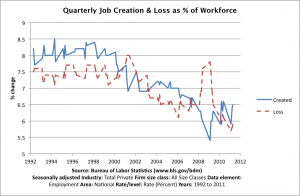Shortly after the Supreme Court’s ruling on the PPACA (Obamacare) case came down last Thursday the world of Facebook exploded in a firestorm of cross fired epithets both praising and decrying the ruling. Frankly I’m just a bit burnt out on it all, as it would seem everything that could be said has been said ad nauseam (and yet I’m writing this article!) I think both sides believe or hope their words can persuade those on the other side, but for the most part it is a futile exercise. The Facebook community and its ilk are no different than Congress or the President; everyone is just talking past each other and no one is listening. In order to persuade you must listen and understand why they hold their beliefs or ideology, otherwise for the most part they will just hear your words but not understand the meaning. My goal in writing these articles has always been to inform and thus persuade. I’d like to think I’ve done a good job at this however I recognize the reality that I’m likely preaching to the choir while being ignored by the congregation.
If you have read this far and you are a pro-Obamacare person then congratulations for being willing to have an open mind. In order for me to have a ghost of a chance of possibly having you consider that socialized healthcare is perhaps not the best route to help people in need, I need your help. I need to understand why you support Obamacare. Please consider the following questions and feel free to respond at the contact info below.
1. Is healthcare a right? If so, why?
2. If healthcare is a right then is there any moral distinction between securing a negative right (i.e. a right secured only through the inaction of others) vs. securing a positive right, such as healthcare (i.e. a right secured only through the action of others)? Stated differently, is it moral to compel other individuals to act on one’s behalf under threat of state sanctions because one’s needs are deemed greater than those from whom the compulsion is placed upon? I believe all major world religions teach to receive help one must ask, not demand?
3. If you believe the needs of some outweigh the rights of others, then do the ends justify the means? If you agree that normally positive rights are by definition amoral, then are violations of morality justified if it might save a human life? (i.e. progressive taxation is theft but is it justified because it might be used for some useful purpose)?
4. If the ends should not justify the means (as this premise can justify any action), then do you believe that with healthcare we can make an exception because people’s lives are on the line? If yes, then why is it ok to violate some rights (property, contract, liberty) but it is not ok to violate other rights (life, privacy) in pursuit of possibly saving a life? Or is it? Would it be ok to euthanize a healthy person if their organs could save the lives of 10 people? Clearly the greater good is served by this action, so why is this wrong yet theft to possibly save a life is perfectly fine? Both involve a “taking” of property.
I understand the desire to help others; all of us on both sides of the debate want to help those in need, we merely disagree on the best course toward achieving that end. If you’re willing to look at the history (see these articles) you will see that it is government, through regulation and subsidization (Medicare) that has caused prices to spiral out of control. Prior to 1965 (Medicare established) healthcare prices were stable and low and those in need were never turned away owing to the charitable nature of the American citizenry and her doctors. To suggest those in need were not helped is to slander the American people as implicit in the charge is that we are an uncharitable bunch that can only do “good” when forced to do so by our government.


